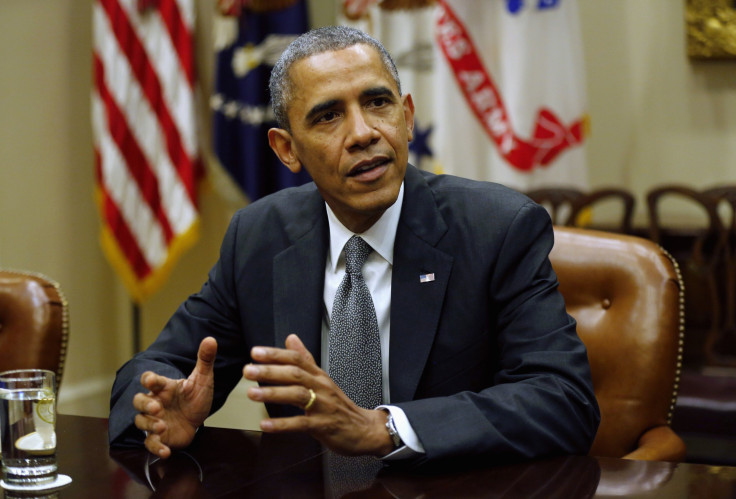Will Some Fast-Food Managers And Other ‘Administrators’ See A Return To Overtime Pay Eligibility?

President Barack Obama is clearly trying to make wages a major theme of his second term.
After passing an executive order in January requiring employees working under federal contract to be paid at least $10.10 an hour, an attempt to get Congress to follow suit by raising the federal minimum wage by that amount, the president is undoing decade-old rules delegating overtime pay.
The White House said Wednesday that the president is asking Labor Secretary Thomas Perez “to begin the process of strengthening overtime pay protections for millions of workers.” Details were scant Wednesday afternoon, but the order will likely undo all or some of the rules implemented in August 2004 under President George W. Bush, which marked the first time in more than 50 years that the federal overtime law had been tweaked.
Under the Fair Labor Standards Act of 1938, the executive branch can alter Department of Labor Rules exempting who earns overtime. Presidents over the decades have used this power to curry support or challenge Congress on wage policies. Obama appears to be using this power in a fashion similar to his executive order last month on federal contractors: to get Congress to support his push to raise incomes at the bottom.
Changes to the overtime law pits the usual camps against each other. Unions, labor rights groups and employees say overtime eligibility should be expanded while business groups, small-government advocates and employers say anything that raises company operating costs can costs jobs and raise prices for consumers.
“Our view is pretty straightforward,” Daniel Mitchell, a fellow at the libertarian CATO Institute in Washington D.C., told International Business Times by phone on Wednesday. “From a philosophical perspective the government shouldn’t get involved with labor contacts between two consenting adults. You can’t impose more labor costs and have them magically disappear.”
Mitchell says the Affordable Care Act is already imposing higher costs on employers, and this new measure is another expense.
“If employees are more expensive, those costs will be absorbed by labor somehow,” he added. “Somebody is going to lose.”
Here’s what the liberal Employment Policies Institute said in a public statement on Wednesday about Obama’s push to expand overtime eligibility: “An updated overtime rule will not only help employees who work hard get ahead, it will also provide a boost to the economy by putting money into the pockets of workers who are likely to spend it. There is not one easy fix to the decades of stagnant wages in America, but revising outdated overtime rules is an important first step. It is time to raise America’s pay.”
Nearly a decade ago, the rules were changed to create three tests to determine who qualifies for one and one-half times of his or her average hourly rate of pay, including hourly, salaried and commission workers.
Under the current rules, there are three tests for overtime qualification: 1.) Hourly wage earners cannot be exempted from overtime, 2.) Salaried workers making below $455 a week cannot be exempted from overtime while workers making salaries over $100,000 a year are automatically exempt, and 3.) Salaried workers that qualify can be exempted if the job they’re doing is deemed to entail administrative, professional or executive duties.
It was tests Nos. 2 and 3 that were changed in 2004. Before then, salaried workers could be exempted if they made more than $155 a week, an unrealistically low sum considering the rise in inflation over the decades that essentially made that bar too low. (Very few if any salaried workers make $155 a week.) The $100,000-a-year exemption was also added in 2004.
It’s the third test that was the most controversial due to its subjective nature. What constitutes a worker whose duties include administrative, professional or executive tasks? The definition leaves broad latitude for defining what kind of salaried workers could be exempted from overtime. For example, a fast-food restaurant worker who spend most of her time mopping floors, taking out trash or frying French fries but participates in making work schedules or hiring decisions would be considered an administrator and therefore exempt from overtime pay.
In 2004, the usual camps were disagreeing over the change in rules. The difference was that at the time the pro-overtime camp was the underdog. Now, it’s the other camp’s turn to put out statistics and critiques over the move to undo what was done in 2004. Details about the new changes have not been released yet. The Department of Labor did not return calls asking when new rules would go into effect.
© Copyright IBTimes 2024. All rights reserved.





















